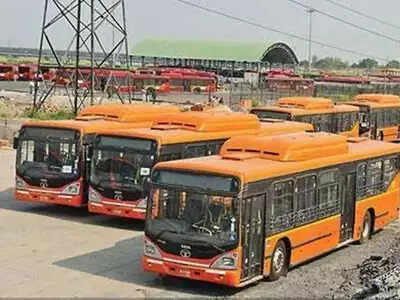
New Delhi: Cluster Scheme buses were involved in 55 accidents in 2023, the highest in the past four years. DTC buses caused 87 accidents last year. The fatality count in the accidents were 18 for Cluster buses and 19 for DTC.
In the case of both the bus services, the number of accidents increased but the toll of lives was lower than in previous years. However, this is even as the number of buses on the roads have come down over the years due to many going off the road for being overaged. The number of CNG DTC buses, which was over 4,000 in 2016-17, came down to 3,637 in 2022-23, signifying that the average accidents per bus is actually higher than on paper.
Experts pointed out that there are several causes of these accidents — from speeding or overtaking and lack of lane discipline to inadequate road architecture to poorly trained drivers. Sources in Delhi govt’s transport department said that drunk driving too was suspected in a recent accident.
Amit Bhatt, MD, International Council on Clean Transportation India, said, “The data clearly established that accidents involving buses are an issue. But to understand the reason, we need to look at the reasons that led to each of these accidents and identify a pattern.” He added, “Road design flaw is something we noticed in our studies. At certain spots before and after flyovers, accidents were taking place because drivers had a tendency to stop even without there being a bus stop.”
Professor PK Sarkar, former head, transport planning, School of Planning Architecture, said, “The number of accidents caused by Cluster buses is fewer than those by DTC mostly because in the former, the drivers are monitored with better cameras and intelligent transport systems. There is a need to have better scheduling, monitoring and regular training of drivers by DTC.”
A transport department official claimed that bus drivers were constantly warned not to speed. “Bus lane enforcement also needs to be implemented more strictly. There are many complaints about drivers not adhering to it,” the official said. Another official, however, admitted that proper inspection of drivers was not carried out before they began their daily duties.
A driver who did not wish to be named said that many of the buses were very old and their mechanics were naturally not good. All the CNG buses in the DTC fleet, 3,191 of them, are more than 10 years old. The number of newer electric buses is 1,300. DIMTS, which oversees the Cluster Scheme, has 2,841 buses.
At a workshop on road safety organised by the transport department, the drivers had cited the long working hours, temporary nature of the job, pressure to complete trips and lack of employment benefits as affecting their performance.
A transport official claimed that refresher courses were held at the Institute of Driving and Traffic Research at regular intervals. He said that all accident reports were taken seriously and assessments done of the causes of these accidents. When necessary, action was taken against erring drivers.

